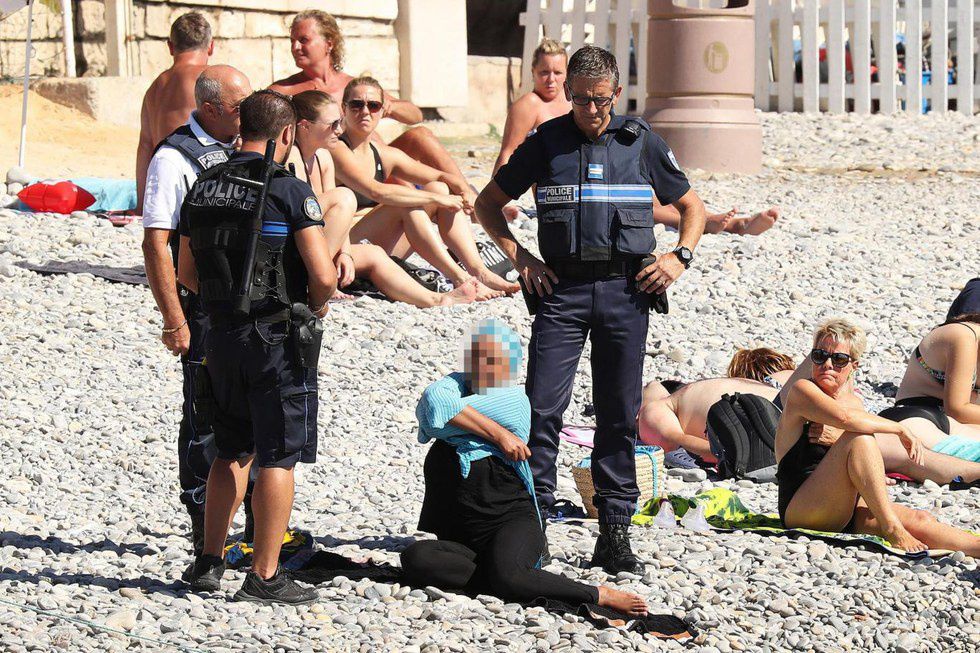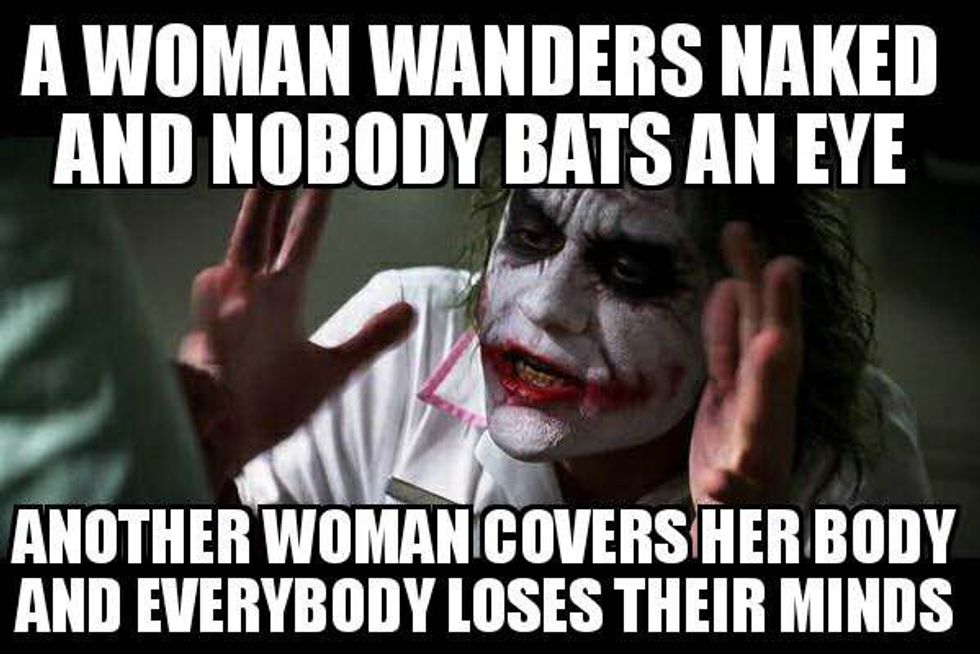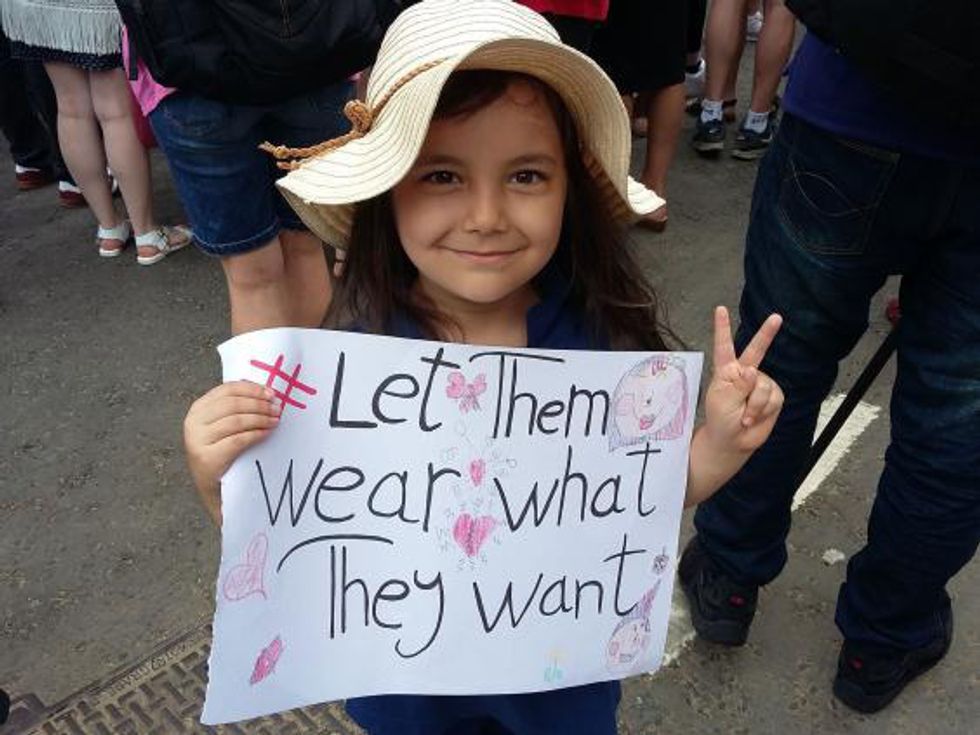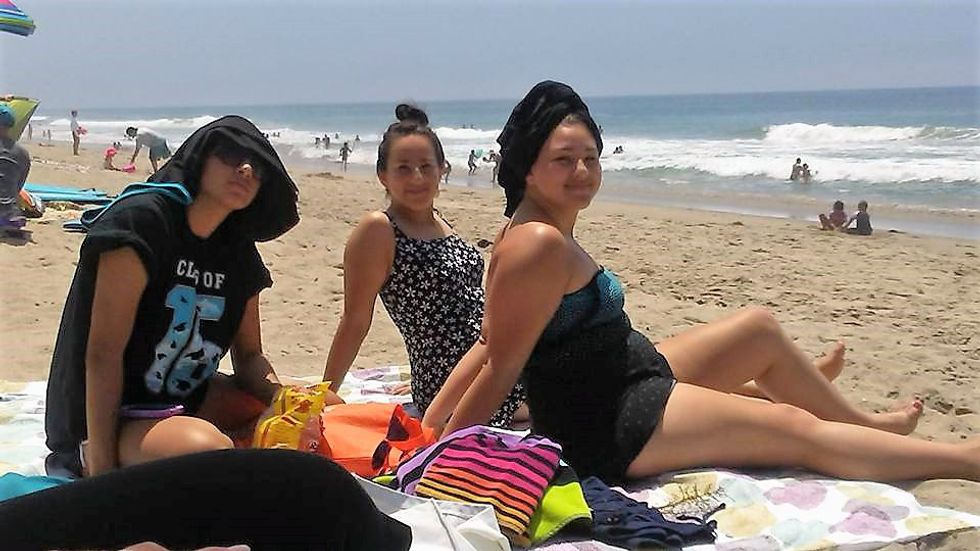Lately, in the news, we have been reading a lot about something called a "burkini" which is a play on of the words 'burqa' (a type of Islamic clothing) and 'bikini.' Not all Muslims choose to wear them, but for many it is seen as a sign of modesty and faith. The big issue with burkinis right now is that they were banned in approximately "30 public French towns" according to Human Rights Watch. The ban caused an uproar because it violates the freedom of the women who choose to wear them. Ironically, the city called Nice in France is where much of these not-so-nice issues have been taking place.
French leaders defended their decision to ban burkinis by saying:
- Burkinis signify oppression.
- French prime minister Manuel Valls describes wearing a burkini as “not compatible with the values of the French Republic."
- There is a need to uphold hygiene, secularism and "public morals."
- In the context of terrorist threats, banning the burkini is “necessary, appropriate and proportionate to the aim pursued in terms of the protection of public order and security,” according to a French judge.
- It's symbolic of Islamic extremism.
- Marine Le Pen said, "France does not lock away a woman's body."
However, despite these claims, The Independentof the UK verified that the ban was suspended by the Council of the State because it is "clearly illegal" to forbid women from wearing attire that pertains to their faith.
French beaches are known for having women and men lounging around wearing nearly nothing! With that in mind, the statements above made by the French officials are nearly humorous and frustrating. The Muslim women go to the beach and see people who are revealing much skin, but the officials don't want to make others feel uncomfortable by allowing Muslim women to wear burkinis. Does that make any sense? No, and that is why organizations such as the French Human Rights League (LDH) and the Collective Against Islamophobia in France have taken action via protests and appeals to courts.
As Americans, we hold the belief that each person has the freedom to express his or herself as long as they allow others to do the same. Are these women harming others by what they're wearing? It doesn't seem that way, but the French are acting on the tension that has been built up since the number of attacks in France. But that is no excuse for the actions that have taken place. The Human Rights Watch said, "The burkini ban is also a concrete example of the very real dangers an extended state of emergency poses to basic rights and equality."
This summer as I have visited the beach, I have worn a one piece bathing suit. My other family members typically dress modestly as well. Not too long ago, I was at the beach in California, and a bus full of young ladies arrived wearing long skirts and t-shirts as they jumped over waves in the Pacific ocean. As I have seen the events in France play out, I am reminded of those young girls.
It would be disheartening for the young ladies I saw on a field trip for their summer camp to be forced to change the way they live their daily life just because someone has a different perspective than they do. In the same way, it is nearly unbelievable that someone would force a woman to reveal more of herself than she is comfortable with. I cannot speak for the specific women whom this has happened to because I do not know exactly how they are feeling. Yet, looking at this picture taken of the woman surrounded by officials, I think countless women would feel uncomfortable in such a situation.
Thankfully, I have been able to live in a community where culture is embraced and freedom of expression is encouraged. Hopefully, we can move forward internationally by allowing women all over wear what makes them feel comfortable. We all have different beliefs, of course, but we can embrace our differences and treat each other with love and respect nonetheless.























